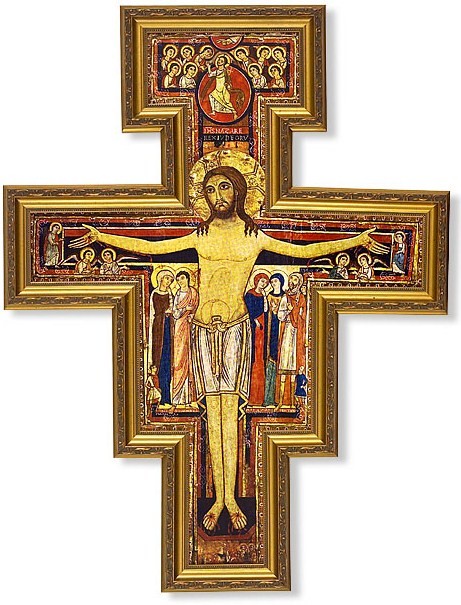By Whose Authority? (Part I)
Why do we believe what we believe? Do we accept the authority of scripture? Is scripture inerrant? If so, how do we know? Do we accept the authority of the Church? What about tradition? Can we know for sure that our beliefs are correct (orthodox)? Many of these questions are being asked by the authors of the blog "By Whose Authority?" These are all questions that we should be able to wrestle with and ultimately answer. I hope to complete a two part series that will look at the Protestant position of authority (part I) and then look at the Catholic position (part II).
Can we know for sure the we have correct doctrine? For a Catholic, the answer to this is, YES! But for the Protestant, the answer is ...probably, in as much as I am being led by the Spirit and using my well informed reason. The Catholic Church believes that scripture, tradition and the magisterium (teaching office) of the Church work together in order to guarantee right doctrine.
Protestants, however, are unanimous in saying that scripture alone (sola scriptura or SS for short) is the rule of faith. "We believe that the only rule and standard by which all dogms and all doctors are to be weighed and judged, is nothing else but the prophetic and apostolic writings of the Old and New Testaments" (Form. Concordiae, 1577). The problem with this is that scripture doesn't interpret itself. The early reformers had already acknowledged this as well. In 1571 Convocation had put forward what was, perhaps unwittingly, a double rule of faith: "preachers", they say, "shall see that they never teach anything . . . except what is agreeable to the doctrine of the Old and New Testament, and what the Catholic Fathers and ancient Bishops have collected out of that very doctrine" (Wilkins, "Concilia", IV, 267). They acknowledged the necessity of the Church for right doctrine. The irony here is that the reformers themselves were exercising "church authority." [1]
Not too long after, we see attempts to remove any Church authority and the individual, with the guidance of the Holy Spirit, is now to be considered the rule of faith. "[I]n the Westminster Confession of Faith (1643-7), which declared that the "Books of the Old and New Testaments are . . . given by inspiration of God, to be the rule of faith and life" (art. ii), but that the "authority of the Holy Scripture . . . dependeth not upon the testimony of any man or church" (art. iv). They add: "We may be moved by the testimony of the Church to an high and reverent esteem of the Holy Scripture . . . yet our full persuasion of the infallible truth and divine authority thereof is from the inward work of the Holy Spirit, bearing witness by and with the word in our hearts" (art. v). " [2]
First of all, does the Spirit tell us that we are reading the inspired word of God when we open the Bible? If so, how do we know? Is it as simple as the Holy Spirit bearing witness with our hearts? This makes things very subjective. The Mormon Church claims the Book of Mormon to be inspired. They can also claim that the Spirit bears witness with their hearts. Using this logic, we must elevate the Book of Mormon, Koran, or any other religious literature that one can claim to be inspired to be on the same level of scripture. This assertion is obviously false.
Second of all, assuming that we are reading the inspired word of God, how can we know for sure that we are correct in our interpretation? For centuries, there have been disagreements on what the Bible actually says. Is infant baptism appropriate? Is baptism necessary for salvation? Is Christ really present in the Eucharist? Disagreements on these issues have created division after division throughout Christendom. So who is right? If we agree with the assertion that the Spirit led individual is the rule of faith, then we have a major problem.
Basically, I see their logic going like this:
Q: "How does one know if he has right doctrine?"
A: "He must be led by the Spirit."
Q: "How do we know if one is led by the Spirit?"
A: "He must have sound doctrine."
This is what philosophers could call "petitio principii" or begging the question. We could also call it circular argument. You can't prove something if your premise is that which you are trying to prove.
It is difficult for the individual to interpret scripture apart from another authority in one form or another. One may use a commentary to help interpret difficult passages. Or one may look to the Church Fathers. Maybe one will even look to the early Church Councils. "In practice, however, the Reformed Churches have never acted up to the principle of private judgment, but have, in one form or another, urged the authority of the Church in deciding the contents of the Bible, its inspiration, and its meaning."[3]
The irony here is that the problem that a protestant has with church authority, they seem to apply to themselves. So if they believe that the Spirit can guide the individual, why can't He guide the magisterium?
[1]http://www.newadvent.org/cathen/05766b.htm
[2] Ibid
[3] Ibid









No comments:
Post a Comment